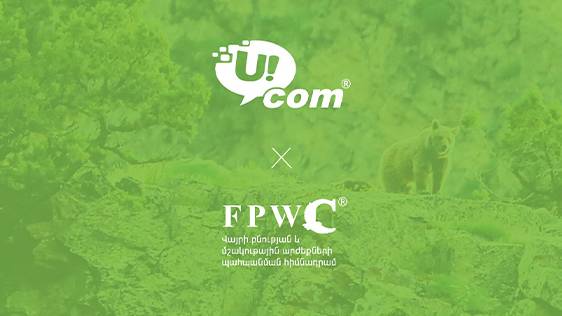
Published on 19/12/2024
Since March 2024, with the generous support of Ucom, the Foundation for the Preservation of Wildlife and Cultural Assets (FPWC) has significantly enhanced its environmental efforts in the Ararat region of the Caucasus Wildlife Refuge.
Leveraging advanced camera technology, FPWC monitors wildlife to track the movements of endangered species and collect precise data about their behavior. This initiative utilizes high-resolution thermal cameras, supported by Ucom’s high-speed internet connection, enabling real-time data transfer and monitoring.
The thermal cameras play a dual role: preventing forest fires and ensuring round-the-clock surveillance in targeted areas to combat illegal hunting. With their high sensitivity, these devices can quickly detect potential fires, allowing rapid response, while also providing a technological edge in safeguarding biodiversity.
Ralph Yirikian, General Director of Ucom, highlighted the importance of merging technology with ecological responsibility:
"Technological advancements should serve humanity’s wellbeing. At Ucom, we believe that a healthy environment is critical for the health and future of humankind. That’s why we are committed to utilizing our technologies and resources for the preservation of nature."
Ruben Khachatryan, Director of FPWC, also emphasized the transformative impact of these innovations:
"High-resolution thermal cameras are not just tools; they are an effective means of conservation. With Ucom’s support, we can monitor remote and hard-to-reach areas in our protected zone, safeguarding endangered species and minimizing human-induced environmental risks."
In addition to the cameras, FPWC acquired a Mitsubishi L200 off-road vehicle, generously provided by Ucom, to enhance the mobility and efficiency of forest rangers. The vehicle enables rangers to maintain constant vigilance over protected areas, ensuring illegal hunting is curbed. Rangers also deploy trap cameras to conduct continuous biodiversity monitoring.
This new vehicle has already improved the effectiveness of conservation efforts in biodiversity-rich areas by facilitating faster response times and greater mobility.
This collaboration between Ucom and FPWC demonstrates how technological progress can contribute significantly to environmental preservation and sustainable development. Together, they show that innovation and commitment to nature go hand in hand to secure a better future for all.